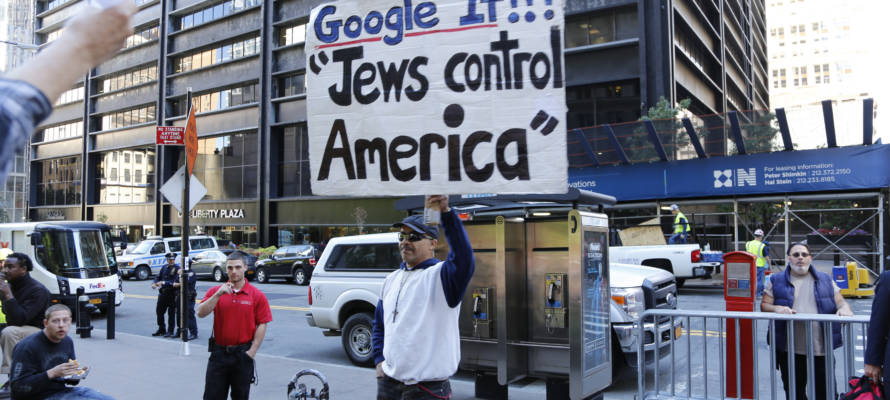Rabbi Salkin, ‘I live in a town where people chant, ‘We don’t want Zionists here.’ The joke’s on them. When I moved in, they got one more.’
By Shula Rosen
As global antisemitism has increased, with rates of anti-Jewish incidents rising 200% since October 7th, 2023, some Jews are less open about their identity, whereas others are becoming more Jewishly involved.
Although the American Jewish Committee survey found that 45% of US Jews felt more connected to Israel since Hamas’s attack on October 7th, anecdotal evidence reveals that many Jews are also reticent about revealing their Jewish roots.
Ynet reports that a number of Jewish mothers admit to “checking the playground” before calling out their children’s Jewish or Israeli-sounding names.
At cafes, American Jews may give “English” versions of their Hebrew or Yiddish-based names, and some who would otherwise affix mezuzahs on their doors right away may delay the ritual until they get to know their neighbors or skip the practice altogether.
A retired social worker in Philadelphia says she is worried about being targeted for Facebook posts advertising events for Friends of the IDF or the Hostages and Missing Families Forum.
I’m struggling,” she told The Media Line. “I live alone and also don’t want to deal with any harassment while feeling so vulnerable and sad these days. I am probably overreacting but I am shocked by this inner process.”
As a cancer patient, she says she also believes she has received inferior medical treatment because of her Jewish roots and recounts being ignored in an ER or “dismissed” by a doctor for requesting test results by phone.
“Maybe I’m paranoid,” she opines, “but I don’t believe I am.”
In a New Jersey suburb, Rabbi Jeffrey K. Salkin said he was concerned that a door plaque with a scene from Jerusalem on it would be vandalized while he was away.
He also admits to pausing before giving a bag he purchased from Hostage Square in Tel Aviv to a friend.
Rabbi Salkin said, “I often bring my bag to shop in New Jersey as my defiant fist. But when I gave that gift to someone I know with little kids, two things went through my mind: Number one, I would understand why you would not want to carry this outside, which makes me sad. Number two, how do you process with your little kids what ‘Bring Them Home Now’ means?”
However, Rabbi Salkin said that despite concerns about Jewish plaques, bags, and mezuzahs, he still wears his Jewish pride.
“I live in a town where people chant, ‘We don’t want Zionists here.’ The joke’s on them,” he said. “When I moved in, they got one more.”
A Boston-based singer/songwriter Linda Marks released a song around Yom Kippur called “Hidden Bloodlines, Hidden Scars,” it reflects “my lifelong practice of hiding my Jewish bloodlines (and my hidden scars) due to fear of antisemitism,” she told The Media Line.
“I am outing myself with this song, in this very scary climate. It has taken a lot for me to step out and be brave,” Marks said, hoping the song will “give others permission to heal.”
ANTISEMITISM IS SURGING, THREATENING JEWISH LIVES!
Join Six Million United Against Antisemitism!
We stand united against antisemitism and pledge to fight hatred and violence against the Jewish people and its institutions around the world.
Sign the petition - Declare 'Never Again is Now'!



